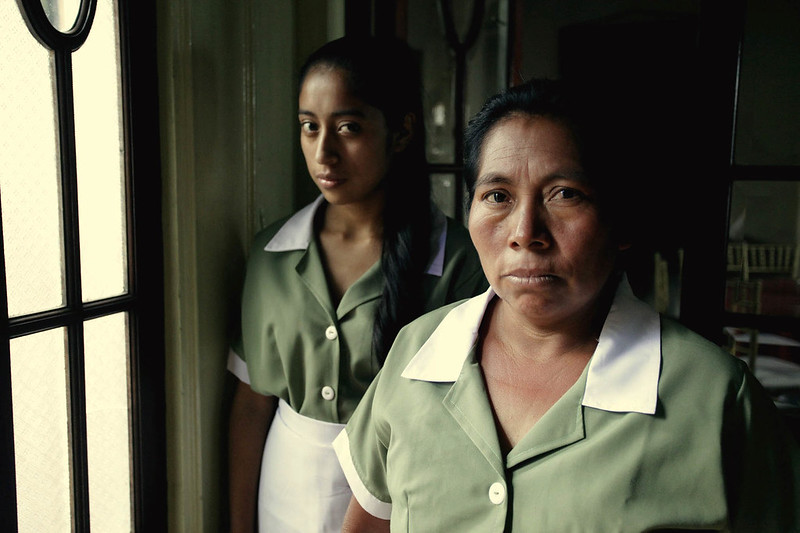
Sundance Film Review: La Llorona
Sundance
La Llorona
Sundance Film Festival
Director: Jayro Bustamante
La Llorona is a good way to get your fix for a socially aware, supernatural psychological/revenge thriller at Sundance 2020. This narrative film responds to the genocides of Maya-Ixil people carried out by the the militaristic Guatemalan government/army. Enrique (Julio Diaz) is a retired general who oversaw the execution, torture and rape of countless Maya-Ixil people, whom the government accused of being guerrilla insurgents. This historicized setting takes root in actual, vile events in Guatemalan history. It’s also relevant to note that warring between Guatemala’s military and guerrilla armies may not have occurred had the U.S./CIA not overthrown Guatemala’s democratically elected government and installed a right-wing dictatorship in 1954.
La Llorona succeeds in subverting the Central American folktale of La Llorona—which is traditionally used to scare women into being domestic—with a new kind of Llorona figure to give Enrique his comeuppance. He’s on trial for genocide and gets convicted, but it’s later ruled a mistrial. While mass protests break out that encompass his home, his family dotes on him, for he’s ailing from a respiratory issue and what his daughter, Natalia (Sabrina De La Hoz), believes to be the early stages of Alzheimer’s-related dementia. His largely Indigenous domestic work staff (maids, butlers) have quit, and only the longstanding, loyal Valeriana (María Telón) remains. She’s sent word to her village that there’s work at Enrique’s home, and the hauntingly beautiful Alma (María Mercedes Coroy) appears through the raucous protestors and at his door.
From here, Alma lures Enrique’s granddaughter, Sara (Aylea Elea-Hurtado), into the pool in order to provoke him by having her see how long she can hold her breath. Tension arises around him and his mental well-being while the chants of protestors outside his gates blaze on. Enrique’s officious wife, Carmen (Margarita Kenéfic), begins to have strange dreams in which the military is pursuing her and her children, later seizing them violently. Enrique seems mad as he repeatedly accuses Alma for being up to no good, brandishing and shooting his handgun all the while—but his lascivious past with Indigenous women discredits him in awkward moments with her.
La Llorona is a success. Not only does the femme-fatale shade Alma confront the racist Guatemalan establishment as a representative for Indigenous people, but images of the ethnic community/ies whom this violence afflicted fleck throughout the film. Props to the crew of La Llorona for not resting on the laurels of Coroy’s beauty but employing it as a foil for Enrique’s chauvinistic archetype. (Continued below.)
La Llorona isn’t without its flaws. Sara sees the conversation about Enrique online and queries Natalia as to his moral integrity. Natalia grapples with the events that actually occurred versus the government’s revised history of the past, and Carmen—who’s white—is notably perturbed by his attraction to Alma vis-à-vis his taste for Indigenous women, which Natalia also queries. With all this in tow, the film doesn’t necessarily afford any clear-cut moral transformation for Enrique’s family, which seems like it could have been a significant thematic linchpin in the broader conversation about this topic.
Nonetheless, La Llorona is a great film. I admire the film crew’s vision for the social commentary through this rejuvenated folktale figure, and I hope to see more filmic expression from Guatemalan artists soon. –Alexander Ortega
Showtimes:
Jan. 28 // 8:30 p.m // Prospector Square Theatre
Jan. 29 // 11:59 p.m // Library Center Theatre Park City
Jan. 31 // 9:30 p.m // Redstone Cinema 1
Read more of SLUG’s comprehensive coverage of the 2020 Sundance Film Festival.